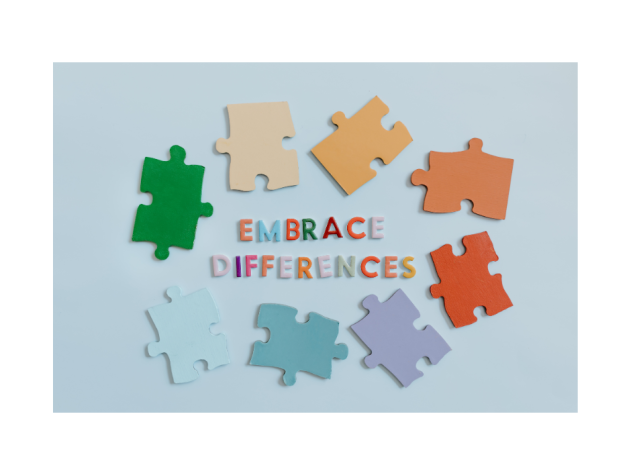Embracing the Quiet Way of Being
I was always the quiet one in the room. Fast forward to today, I do speak up—but I’m still the kind of person who notices things others might miss, who thinks before speaking, and who finds energy in reflection rather than in constant chatter.
For a long time, I felt like this was a flaw. In a world that celebrates extroversion, being reserved often feels like being “less than.”
But over the years, I’ve started to see shyness differently. I’ve come to realise it’s not a deficit—it’s a difference. Just like race, gender, culture, or neurodivergence, shyness belongs to the wide spectrum of human diversity. And when we view it through this lens, it’s easier to see the value in quiet voices.
The Strengths of Shyness
Being shy doesn’t mean being invisible, it simply means showing up in a different way. While extroversion is often praised for its energy and charisma, shyness holds its own quiet power. Shy people tend to listen more than they speak, notice details others might overlook, and think deeply before offering their perspective. This reflective way of engaging with the world can bring a depth and richness that fast-paced, louder voices sometimes miss.
Shy individuals often excel at empathy, too. Because they’re more attuned to observation, they pick up on unspoken cues, shifts in tone, or the feelings behind someone’s words. They don’t need to be the centre of attention to connect meaningfully; instead, they offer understanding and presence in ways that feel grounding to those around them.
Leadership, too, can look different through the lens of shyness. While traditional leadership is often equated with boldness and visibility, shy leaders frequently guide with subtlety—through listening, careful decision-making, and leading by example rather than force. These are forms of leadership that foster trust and create space for others to shine.
I’ve felt this tension myself. In group settings, I used to hold back, worrying my ideas weren’t “important enough” or that someone else had already said it better. But when I gave myself permission to contribute on my own terms—whether that was sharing ideas in writing, speaking in smaller groups, or offering thoughtful reflections after I’d had time to process—I discovered that my voice carried weight. Often, my contributions resonated more than I expected, not in volume, but in impact.
The truth is, the world doesn’t only need the voices that speak the loudest—it needs the ones that speak with thought, care, and perspective. Shyness doesn’t make someone less valuable; it brings balance. In a world filled with noise, thoughtful voices cut through with clarity.
Cultural and Personal Layers
Shyness doesn’t exist in a vacuum—it’s shaped by the cultures we live in and the values we absorb. In some societies, quietness is admired as a sign of wisdom, respect, or humility. In others, it’s misinterpreted as a lack of confidence, ambition, or ability. This cultural lens plays a powerful role in how shyness is experienced.
For me, this realisation was a turning point. It helped me see that shyness wasn’t a personal failing, but a way of being that was either valued or misunderstood depending on context. The problem wasn’t my quietness—it was the assumptions placed on it.
Once we recognise this, we can begin to embrace our natural way of engaging with the world, rather than constantly trying to squeeze ourselves into an extroverted mould. Quiet connections may be slower to form, but they are often deeper and more intentional. Professional contributions may come less frequently, but they tend to be thoughtful and carefully considered. These are not weaknesses—they’re strengths expressed differently.
Honouring Quiet Voices
If we are truly committed to diversity and inclusion, we must extend that commitment to personality and social styles. Honouring shyness means recognising that contributions don’t need to be loud to be valuable.
It looks like this:
- Creating spaces where quiet reflections are welcomed alongside quick responses
- Recognising that silence can mean thoughtfulness, not disengagement
- Encouraging multiple forms of participation, from writing to small-group conversations
- Valuing listening as much as speaking
When we build environments that include shy voices, we don’t just support individuals—we strengthen the whole. Teams, classrooms, and communities that welcome both quiet and outspoken voices become more nuanced, empathetic, and resilient. Diversity in communication styles enriches the collective conversation.
Shyness in the Context of Diversity
When conversations about diversity arise, we often focus on what’s visible—gender, race, disability, sexuality, culture. But diversity also lives in the less visible aspects of who we are: the way we think, feel, process information, and communicate.
Shyness belongs here. It is part of the spectrum of social and emotional diversity. Shy individuals often bring qualities such as attentiveness, reflection, empathy, and careful listening. These are deeply valuable traits, yet they can be overlooked in environments that reward speed, boldness, and constant visibility.
By reframing shyness as a form of difference—not a deficit—we open up space for these strengths to be recognised, celebrated, and integrated into how we learn, work, and connect.
The Cultural Lens on Shyness
It’s also worth remembering that shyness is not universally understood in the same way. In Japan, for example, quietness may be seen as respectful and considered. In the UK or the US, it might be misread as a lack of confidence or leadership potential.
This shows us that shyness is not inherently negative—it’s socially defined. It is shaped by values, traditions, and expectations. Understanding this cultural dimension helps us challenge stereotypes and question why we equate loudness with competence.
True diversity asks us to go beyond tolerance of difference. It asks us to question what we assume to be “normal” and to broaden our definitions of strength, confidence, and contribution.
Creating Inclusive Spaces for Shy Voices
Inclusion isn’t about asking shy people to “speak up more” or “come out of their shell.” It’s about designing spaces where different ways of engaging are not only accepted but valued.
This might mean:
- Offering multiple channels for participation—verbal, written, digital, or one-to-one
- Respecting silence as part of conversation, instead of rushing to fill every pause
- Valuing depth and reflection over speed and spontaneity
- Recognising and celebrating quieter forms of leadership, from mentorship to modelling calm presence
When we take these steps, we don’t just make space for shy people to thrive—we enrich the whole group. Expanding the ways people can contribute broadens the conversation and deepens understanding.
Shyness as Human Difference
To see shyness as a difference is to place it within the wider spectrum of human diversity. Just as we value neurodiversity, cultural diversity, and gender diversity, we can also value social diversity. Shyness doesn’t need to be overcome; it needs to be honoured, respected, and appreciated.
In the end, diversity isn’t only about who gets a seat at the table—it’s about making sure every voice, whether bold or quiet, feels that their presence matters.
Shyness is not something to fix. Quiet voices matter. Thoughtful voices matter. Shy voices matter.
If you’ve ever felt like your quietness was a flaw, I invite you to reframe it as a strength. The world doesn’t just need loud voices—it needs yours too.
Pass this along to someone who needs a reminder that their quiet voice matters.

